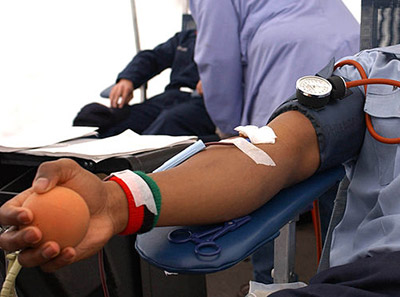BOTSWANA GAY BLOOD DONATION BAN CHALLENGED
 Following the repeal of a similar ban in South Africa, an NGO is planning to take the Botswana government to court over its refusal to allow gays to donate blood.
Following the repeal of a similar ban in South Africa, an NGO is planning to take the Botswana government to court over its refusal to allow gays to donate blood.
Cindy Kelemi from the Botswana Network on Ethics, Law and HIV/AIDS (Bonela), told Gabz Fm News last month that the restriction on gay blood donation amounted to “institutionalised discrimination” and was a violation of the LGBT community’s dignity.
She said that Bonela would be taking up the ban with the authorities and if it was not satisfied with their explanation would pursue legal action.
In an earlier interview with the Sunday Standard, the coordinator of Lesbians, Gays and Bisexuals of Botswana (LEGABIBO), Cain Youngman, revealed that one of the group’s members was barred from donating blood.
“One of our members was told by the national blood donation centre that they do not accept blood from gays and lesbians,” said Youngman.
“It’s very sad that we are now barred from donating blood. What I know is that they should refuse to accept one’s blood if there are chances that he or she could pose health risk to others. But now our government has gone further to bar us from donating blood on the basis of our sexual orientation,” he told the newspaper.
The Ministry of Health initially denied that it was refusing to accept blood from gay people, but National Blood Transfusion Services (NBTS) Acting Medical Director Mukendi Kayembe later confirmed the ban at a press conference on Tuesday.
According to Yarona FM News, he told journalists that the NBTS used World Health Organisation (WHO) guidelines on blood donation, which classify homosexuals as a high risk group, as the basis for its policy.
South Africa used the same WHO guidelines to justify its ban, which it repealed last month. The South African National Blood Service (SANBS) now bars anyone who’s had sex with a partner of less than six months or with multiple partners from donating blood, regardless of sexual orientation.
While homosexuality is not specifically outlawed in Botswana, it can be prosecuted under Section 164 of the Penal Code that bars “carnal knowledge of any person against the order of nature,” with penalties including seven years in prison.
Leave a Reply